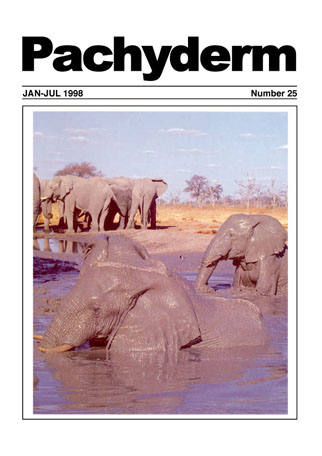Elephant contraception research in the Kruger National Park
Abstract
Reviews two immunocontraception methods used for cow elephant in Kruger NP recently: porcine zon pellucida immuno-contraceptiove vaccine (pZP), and hormonal control using subcutaneous oestradiol-17B (Oestrogen) implants. In terms of effectiveness the oestradial implants proved successful in that none of the treated cows was pregnant after 6 months, the end of the expected life of the implant, nor were any pregnant after 12 months, which may have been due to amounts of estrogen still being released by implants preventing ovulation or a more permanent effect on the ovaries. However, due to the fact that during the first six months the cows implanted with oestradiol-17B exhibited behavioural aberrances (these animals were harrassed by bulls) which resulted in substantially increased stress levels on the treated cows and their calves, the project has been temporarily suspended. The pZP technique had been demonstrated to be effective in other locations, but after 12 months ultrasonographic examination showed 8 of the 19 treated cows were pregnant. Both methods require further research.
Downloads
Published
How to Cite
Issue
Section
License
Copyright (c) 1998 Ian J. Whyte, Dave G. Grobler

This work is licensed under a Creative Commons Attribution-NonCommercial 4.0 International License.




